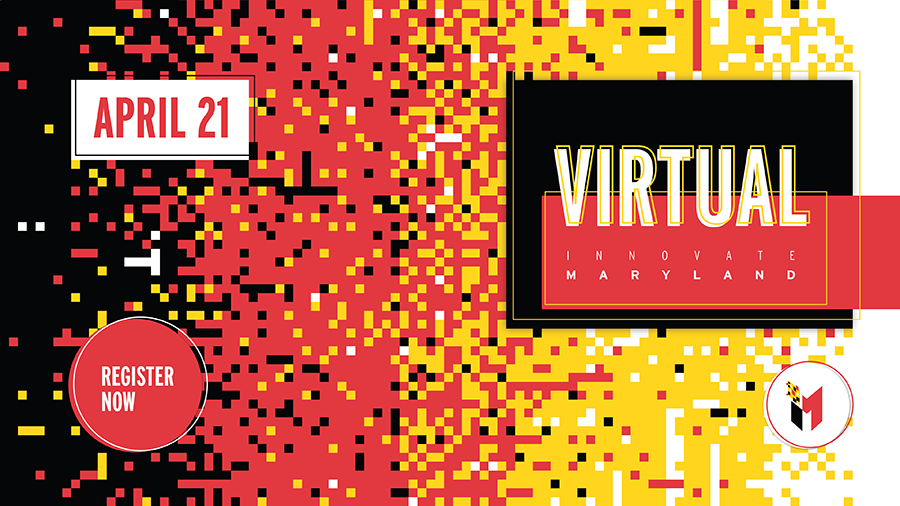 |

|
 |
This year’s Invention of the Year award winners will be announced April 21 at the Innovate Maryland event. |
|
From clean energy and better batteries to advances in human health and human–computer interaction, the Clark School’s 2021 Invention of the Year award nominees span the range of engineering research and entrepreneurship. Among the University of Maryland’s nine nominees this year, four are led by or include Clark School researchers.
Each year since 1987, UMD honors exceptional inventions that have the potential to make a transformative impact on science, society, and the free market. Invention of the Year award finalists are selected from prior year invention disclosures.
“What happens at the Clark School helps the world. We believe in engineering as a public service, and are proud that our faculty and student inventors fulfill that service by improving people’s lives,” said Robert Briber, interim dean of the Clark School. “Next-generation remote monitoring of cardiovascular health; alternative energy sources that are safe, cost-effective, and environmentally friendly; and helping computers understand how you feel—that’s the work of Maryland engineers.”
This year’s winners will be announced April 21 at the Innovate Maryland event, which is part of UMD President Darryll Pines’ Inauguration Week activities.
Register for the virtual Innovate Maryland event.
The Clark School’s 2021 Invention of the Year award nominees are:
Membrane Reactor for Natural Gas Conversion to High-Quality Fuels
With virtually zero CO2 emissions, this innovative natural gas conversion system has potential applications for power storage and generation, chemical manufacturing and application, and more.
Invention team:
- Eric Wachsman, Professor and William L. Crentz Centennial Chair in Energy Research, Departments of Materials Science & Engineering and Chemical & Biomolecular Engineering; Director, Maryland Energy Innovation Institute
- Dongxia Liu, Associate Professor, Department of Chemical & Biomolecular Engineering
- Mann Sakbodin (Ph.D. ’19, Chemical Engineering), Founding CEO, MS Science and Engineering Co. and Sakbodin Property Co. (Thailand)
Novel Devices to Unobtrusively Determine Cardiovascular Function
This innovative new method would allow for unobtrusive determination and trend tracking of cardiovascular parameters; with further development, it may be useful for remote, continuous monitoring of patients outside of hospital settings.
Invention team:
- Jin-Oh Hahn, Associate Professor, Department of Mechanical Engineering
- Sungtae Shin, former postdoctoral researcher, Department of Mechanical Engineering, current Assistant Professor, Dong-A University (South Korea)
- Azin Sadat Mousavi, Ph.D. student, Department of Mechanical Engineering
- Yang Yao, Research Assistant, College of Medicine and Biological Information Engineering, Northeastern University (China)
Reversible Chemistry in Graphite Cathode for Safe, High-Energy Batteries
With potential applications for electric cars, wearable devices, and other energy storage needs, this innovation offers an energy-dense battery that is safe, flexible, and cost effective.
Invention team:
- Chongyin Yang, former Assistant Research Scientist, Department of Chemical & Biomolecular Engineering, current Assistant Professor and Tesla Canada Chair, Department of Physics & Atmospheric Science, Dalhousie University (Canada)
- Chunsheng Wang, R.F. and F.R. Wright Distinguished Chair, Departments of Chemical & Biomolecular Engineering and Chemistry & Biochemistry
Using Artificial Intelligence to Recognize Emotion
With potential applications for advertising, gaming and entertainment, and more, this invention—an emotion recognition algorithm—uses three different factors (face, speech, and text) to accurately determine human emotions.
Invention team:
- Trisha Mittal, Ph.D. student, Department of Computer Science
- Uttaran Bhattacharya, Ph.D. student, Department of Computer Science
- Rohan Chandra, Ph.D. student, Department of Computer Science
- Aniket Bera, Assistant Research Professor, University of Maryland Institute for Advanced Computer Studies
- Dinesh Manocha, Distinguished University Professor and Paul Chrisman Iribe Professor, Departments of Computer Science and Electrical & Computer Engineering
April 19, 2021
|

